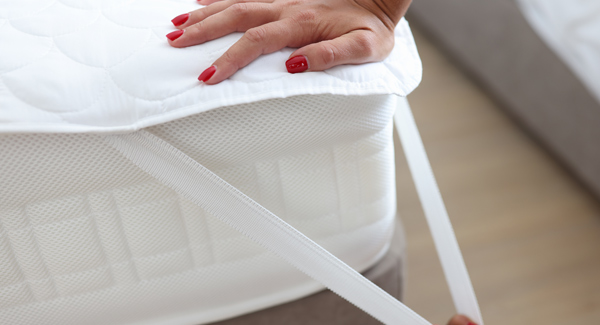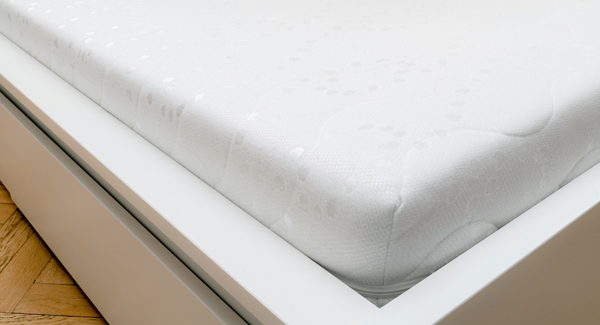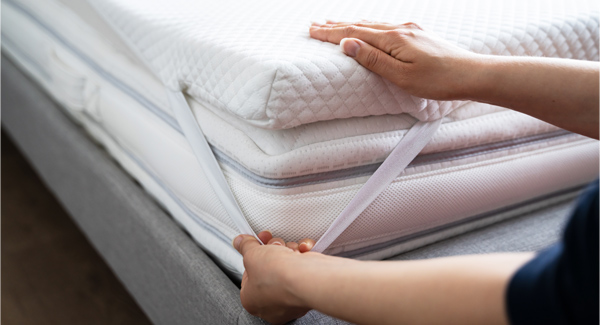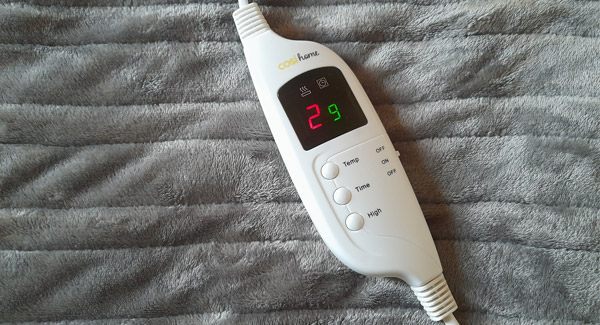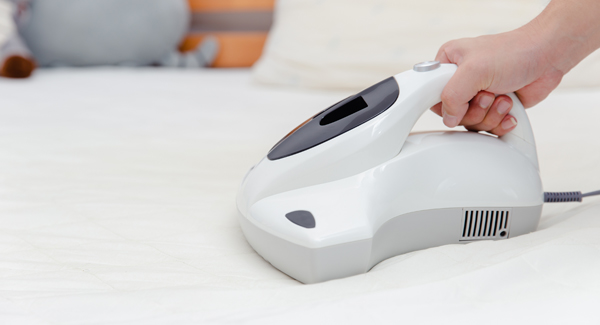Home » Bedding advice » What Type Of Mattress Protector Is Suitable For A Memory Foam Mattress?
What type of mattress protector is suitable for a memory foam mattress?
Article navigation
- Published:
- Written by: Tony Brown
- Topic: Bedding advice
If you have a memory foam mattress or are considering purchasing one, taking good care of it is vital. A quality mattress protector safeguards your mattress from stains, spillages, dust mites, and allergens. It can also extend the life of your mattress by keeping it in good condition.
However, the type of mattress protector you choose can affect how your memory foam mattress feels and performs.
What to consider when choosing a mattress protector for a memory foam mattress
When choosing a mattress protector for memory foam, consider the following:
Material thickness
One of the primary considerations when choosing a mattress protector for a memory foam mattress is its thickness. Memory foam closely conforms to the body, providing a snug, hugging sensation. However, using an overtly thick protector creates an additional layer between the body and the mattress, affecting how the mattress feels and performs.
Therefore, using a thinner mattress protector is advisable to ensure the material does not lose its effectiveness in responding to body shape.
Waterproofing
Some memory foam mattresses come with a removable, washable cover. However, the cover won’t protect the mattress from stains, spillages and accidents. Memory foam is a sponge-like material that easily absorbs liquids. If the material becomes wet, this can damage its layers and create the ideal conditions for mould and mildew to develop.
Using a waterproof mattress protector with a memory foam mattress is advisable to prevent liquids from penetrating the material. These typically have a backing material or membrane that acts as a waterproof barrier.
However, be mindful that some waterproof protectors may rustle or make a noise when in use, so it’s advisable to choose one that’s quiet. Also, ensure the backing material is fully breathable.
Breathability
Memory foam is a temperature-sensitive material that relies on body heat to soften and conform to body shape. Its dense cell structure can trap body heat, making some sleepers feel warmer in bed. Though many memory foam mattresses have cooling features to combat this, a breathable mattress protector can help to ensure a cooler and more comfortable sleep environment.
Materials like cotton, bamboo, and Tencel are excellent options. Cotton is soft, hypoallergenic, and moisture-absorbent, while bamboo is durable, eco-friendly and temperature-regulating. Tencel, made from sustainably sourced wood pulp, excels at moisture-wicking, keeping you cool and dry, and is known for its gentle feel on the skin.
Easy fit
Memory foam mattresses vary in depth, with some reaching up to fourteen inches or more. Standard mattress protectors typically fit mattresses up to twelve inches deep. However, a standard protector may not fit a deeper mattress. If it is too tight, the added pressure could damage the mattress and cause it to lose its shape. In such cases, consider an extra-deep mattress protector instead.
It’s advisable to measure the mattress’s depth before choosing a protector. This ensures that the protector and the memory foam mattress are suitable for use together, reducing the risk of damage.
Cleaning and maintenance
Most mattress protectors are machine washable for easy cleaning. As your bed absorbs moisture, dead skin cells, bodily oils, and food and drink residue, frequent cleaning is essential to maintain a clean and comfortable sleep environment.
Washing the mattress protector before using it for the first time is advisable as it softens the material, making it more flexible. It also eliminates any odours from the packaging. It’s often a good idea to have two mattress protectors so that you have a spare on hand when one is in the wash.
Final thoughts
Every mattress needs protection. While a mattress protector is an optional bedding item, using one offers peace of mind, safeguarding your mattress from liquids, stains, allergens, and pests like dust mites and bed bugs. Remember to ensure the mattress protector is compatible with your memory foam mattress.
Share this article

About the author
Tony Brown is the founder and creator of The Bed Consultant. His career in the bed industry began in 2002. After graduating from university with a degree in Business Administration, Tony joined one of the largest independent furniture retailers in the UK as a bed consultant. Tony has helped thousands of customers find the perfect mattress.

